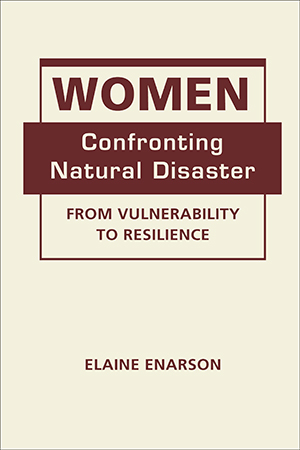Natural disasters push ordinary gender disparities to the extreme—leaving women not only to deal with a catastrophe's aftermath, but also at risk for greater levels of domestic violence, displacement, and other threats to their security and well-being. Elaine Enarson presents a comprehensive assessment, encompassing both theory and practice, of how gender shapes disaster vulnerability and resilience.
Elaine Enarson is an independent scholar based in Colorado and cofounder of the Gender and Disaster Network.
"Through retelling many women's stories Enarson provides a good guide to new thinking about disaster risk and resilience."—Sara Hamideh, International Journal of Mass Emergencies and Disasters
"Offers a comprehensive understanding of the unique and often overlooked experience of women confronting disasters."—Helen G. O'Brien, Journal of Women and Social Work
"Lay[s] the groundwork for future work in the field that will benefit everyone who is touched by disaster."—Kimberly J. McGann, Gender & Society
"Lay[s] out in great detail the ways in which pre-disaster inequities are typically enhanced in post-disaster response and recovery processes ... provide[s] concrete guidance on the kinds of collective actions that can stem and even reverse these inequities."—Lynn Weber, Contemporary Sociology
"Challenge[s] disaster researchers not only to include gender as a variable but also to investigate and take seriously the nuanced experiences of women through their firsthand accounts of disaster."—Kristen Barber, Signs
"An important synthesis of the (relatively small) body of research on women and disasters in the United States over the past 20 years.... One of Enarson's primary aims is to combat stereotypes about women in disasters and to highlight the multitude of ways that their contributions are essential in the face of disaster circumstances. Over six chapters she masterfully does so."—Megan Reid, American Journal of Sociology
"Outstanding.... Compelling and insightful. This book will become a classic in the disaster literature."—Lori Peek, Colorado State University






